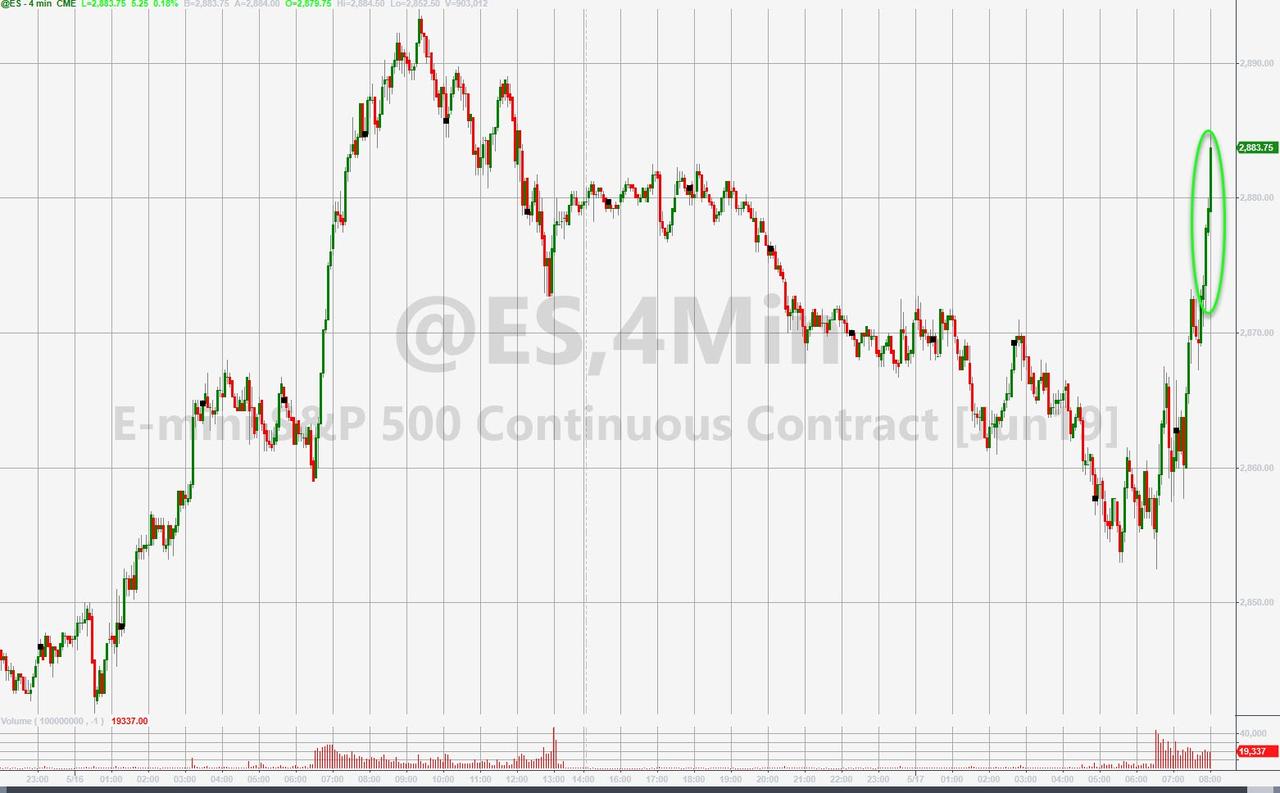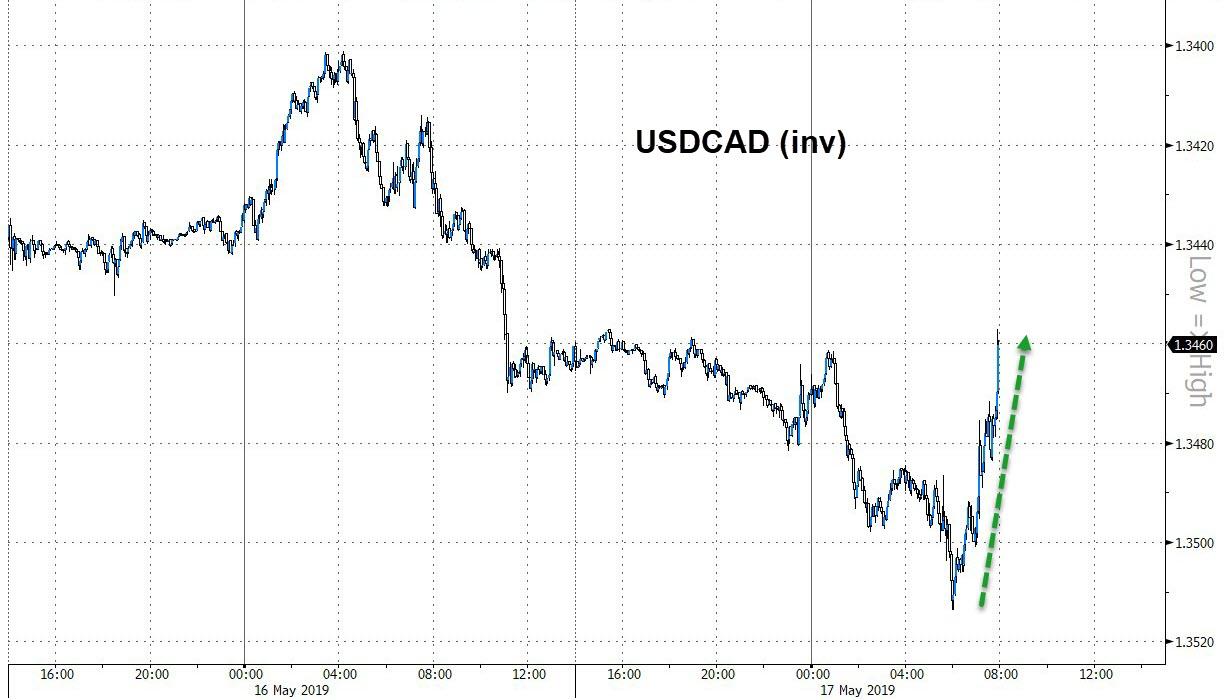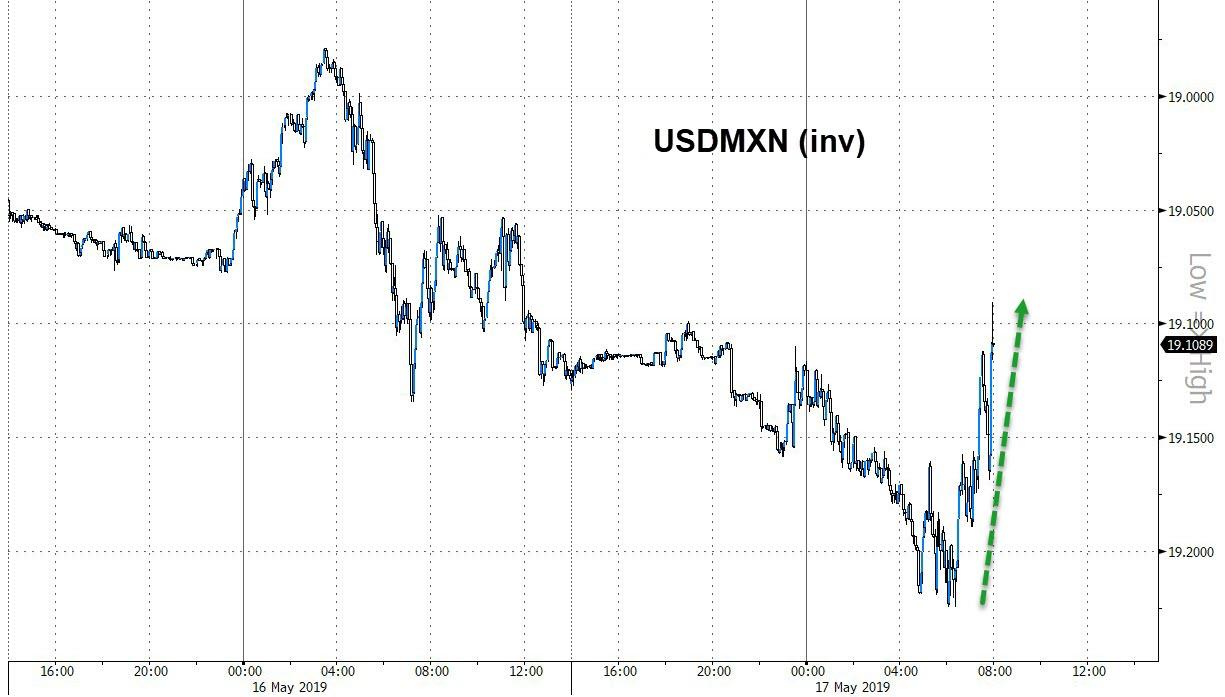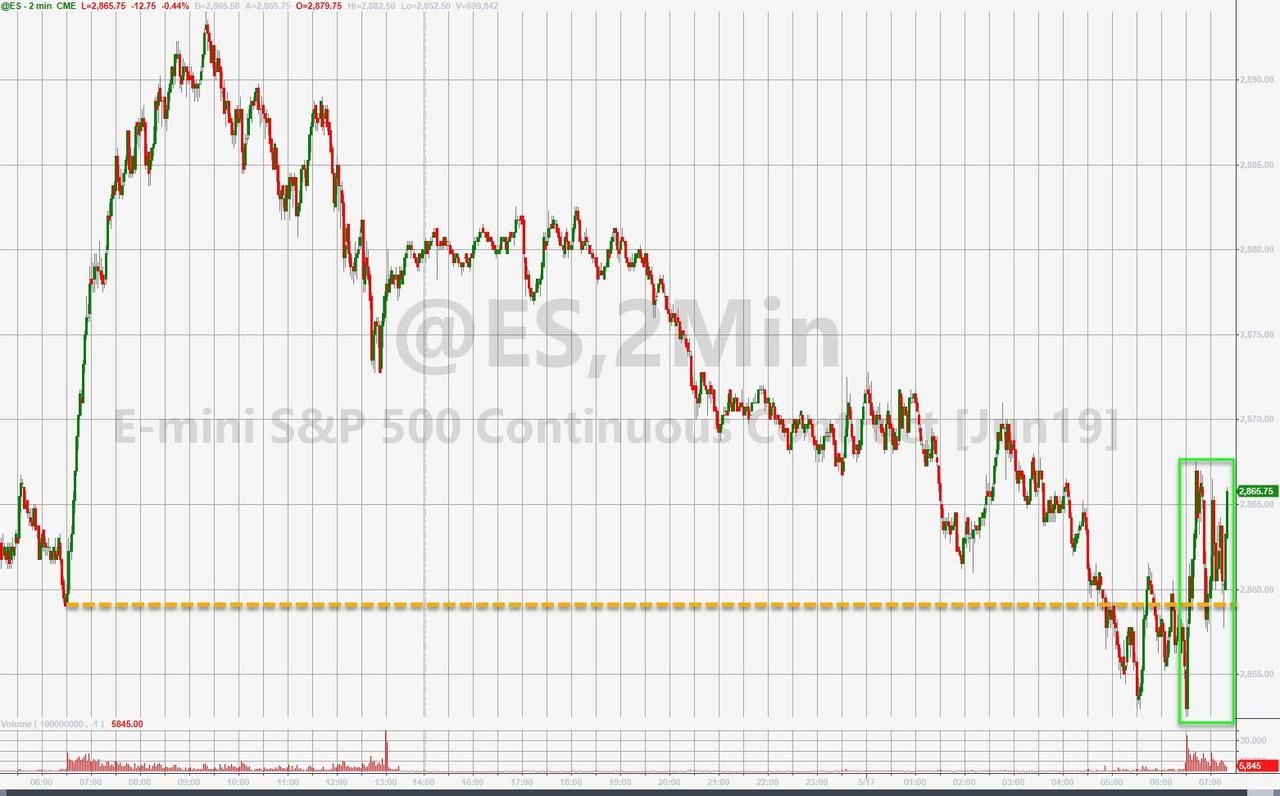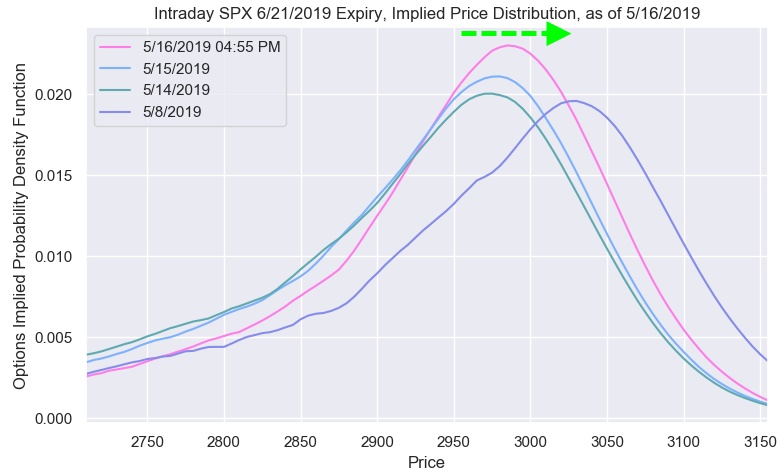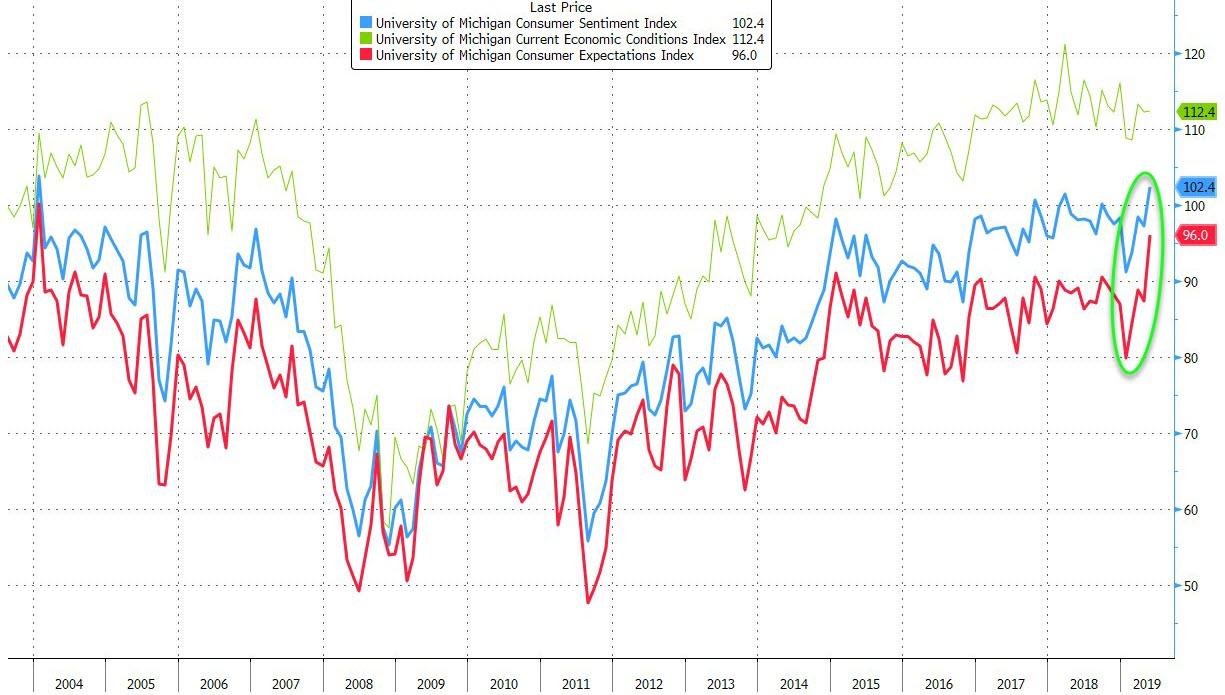Authored by Mike Shedlock via MishTalk,
The lie of the day: Skilled pilots could have prevented the two 737 Max crashes.
The deeper we dig into the 737 Max crashes, the easier it is to make a case that Boeing, not software, not poorly trained pilots is to blame for the 737 Max crashes.
The Seattle Times addresses the issue in How much was pilot error a factor in the Boeing 737 MAX crashes?
In his opening statement Wednesday at the House Aviation subcommittee hearing on the 737 MAX in Washington, D.C., the lead Republican congressman blamed errors by the Indonesian and Ethiopian pilots for the two deadly MAX crashes in those countries.
“Pilots trained in the United States would have successfully been able to handle” the emergencies on both jets, said Rep. Sam Graves of Missouri, ranking member of the House Transportation and Infrastructure Committee. He added that preliminary reports about the accident “compound my concerns about quality training standards in other countries.”
That’s the gambit that Boeing wants everyone to believe. However, pilots strongly disagree.
“I’m disappointed with those who sit in their lofty chairs of judgment and say this wouldn’t have happened to U.S. pilots,” said a veteran captain with a major U.S. airline, who asked not to be named to avoid involving his employer.
The flight crew on the March 10 Ethiopian flight faced a barrage of alerts in the flight that lasted just 6 minutes. Those alerts included a “stick shaker” that noisily vibrated the pilot’s yoke throughout the flight, warning the plane was in danger of a stall, which it wasn’t; repeated loud “DON’T SINK” warnings that the jet was too close to the ground; a “clacker” making a very loud clicking sound to signal the jet was going too fast; and multiple warning lights telling the crew the speed, altitude and other readings on their instruments were unreliable.
The Lion Air crash in October would have been at the forefront of the Ethiopian pilots’ minds, and they seem to have focused solely on following the Boeing procedure to eliminate the MAX’s new flight-control system — called Maneuvering Characteristics Augmentation System (MCAS) — that was pushing the nose down. They did so by flipping two cut-off switches. But then the heavy forces on the jet’s tail prevented them from moving the manual wheel in the cockpit that would have corrected the nose-down attitude.
“What would the best pilot do on their worst day with all of this sensory overload?” the veteran U.S. airline captain said. “Who knows what any of us would have done?” “The manufacturer isn’t supposed to give us airplanes that depend on superhuman pilots,” he added. “We should have airplanes that don’t fail the way these airplanes failed.”
What Does the Simulator Say?
Starting from the point where the Ethiopian pilots hit the cut-off switches and stopped MCAS from operating, the U.S. MAX crew tried in the simulator to recover.
Even though the U.S. crew performed the simulator experiment at a normal speed of 250 knots instead of the more than 350 knots of the Ethiopian jet, the forces on the jet’s tail still prevented them from moving the manual wheel in the cockpit that would have corrected the nose-down attitude.
To get out of it, the pilots used an old aviator technique called the “roller coaster” method — letting the yoke go to relieve the forces on the tail, then cranking the wheel, and repeating this many times.
This technique has not been in U.S. pilot manuals for decades, and pilots today are not typically trained on it. Using it in the simulator, the U.S. MAX crew managed to save the aircraft but lost 8,000 feet of altitude in the process. The Ethiopian MAX never rose higher than 8,000 feet, indicating that from that point in the flight, the crew couldn’t have saved it.
Two Hours on an Ipad
Boeing says 2 hours on an iPad is all it takes in additional training.
Really? When top-notch pilots cannot recover a craft in a simulator as opposed to real life panic?
Of course, Boeing insists that the software is now fixed.
Is it?
Trained Pilots
Bjorn Fehrm, a Swedish pilot and aerospace engineer who is an analyst for Bainbridge Island-based Leeham.net, said the report assumes the accidents could have been avoided by “a really proficient pilot … on a good day.” But he said Boeing and Airbus cannot rely on the roughly 300,000 pilots flying worldwide having a good day and being perfectly trained for every emergency.
The veteran U.S. airline captain said that the American aviation community needs to avoid getting “too cocky about U.S. pilots being immune from mistakes.”
He said he’s spent a lot of time flying with local pilots in western China where the mountains are high and the flying is hazardous. I’d put them up against American airline pilots any day,” he said. “They are exceptional airmen.” And he criticized Boeing for designing an airplane in which a system triggered by a single sensor failure would present such challenges and require such a high-performance response from the pilots.
Myth Shattered
I believe that dispels the myth that US pilots would necessarily have avoided those crashes.
Damning Audio
Next consider a damning audio that shows pilots confronting Boeing about new features suspected in deadly crashes.
CBS News has obtained audio from the American Airlines pilots’ union confronting Boeing about new features to the 737 Max that may have been factors in two deadly crashes. Frustration boiled over during the tense meeting in November 2018, less than a month after the first Max crashed, and four months before the second crash.
“We flat out deserve to know what is on our airplanes,” one pilot is heard saying. “I don’t disagree,” a Boeing official said.
The pilots at the meeting were angry that system was not disclosed to them until after the first crash. “These guys didn’t even know the damn system was on the airplane — nor did anybody else,” one pilot said.
The official, Boeing vice president Mike Sinnett, who does not appear to know he was being recorded, claimed what happened to Lion Air was once-in-a-lifetime type scenario.
Boeing told the pilots it would make software changes, perhaps in as little as six weeks, but didn’t want to hurry it. “We want to make sure we’re fixing the right things,” the official said. “That’s the important thing. To make sure we’re fixing the right things. We don’t want to rush and do a crappy job of fixing the right things, and we also don’t want to fix the wrong things.”
That fix was still in development when the second 737 Max crashed in March, leading to the worldwide grounding of the plane. The existence of the audio was first reported by the Dallas Morning News.
Fixes Needed
Boeing was aware fixes were needed but sent out no alerts or warnings. Boeing did not treat this as an emergency.
Recall that even after the second crash Boeing begged Trump to not ground the planes.
How galling is that?
Criminal Negligence?
The Points Guy says Boeing Faces a Possible Legal Nightmare With Airlines for the 737 MAX.
Norwegian Air has already declared that it will demand compensation from Boeing for its grounded fleet of 737 MAXes and lost fares, meaning that a lawsuit is all but certain unless Boeing simply gives in, which is unlikely. Other airlines are widely expected to follow Norwegian’s lead.
Boeing and its client airlines are likely already frantically preparing their legal arsenals. That will play a huge role in determining how much the aircraft manufacturer will ultimately be on the hook for — or whether it might even come out of the debacle scot-free.
The key point of contention will be whether Boeing did its due diligence in keeping its planes safe. That includes rolling out an airworthy vessel, but also making sure it and its clients were up to date on needed improvements, upgrades and revised standards.
“The easiest thing to relate it to is your car,” Dedmon said. “If the airbag’s been found to be bad, the manufacturer issues a notice to the buyers, you take it to the dealer, and they get it fixed. Things of that nature happen in aviation as well, like a repair that went out at a certain time, or inspections to have to be done within certain flight hours — those things aren’t routine in aviation, and there’s nothing abnormal in any form with that.”
Where the parties are likely to disagree in court, however, is whether the airline or Boeing or a third party didn’t do the best reasonable job of making sure everyone who needed to know was kept abreast of vital updates.
What the plaintiffs’ lawyer will particularly be keeping an eye out for — but are unlikely to find, in this day and age — is a “smoking gun” document that’s proof that Boeing knew about a dangerous fault in the 737 MAX and covered it up. That’s what happened with the Ford Pinto, which notoriously exploded into flames in relatively minor collisions.
Tough But Not Too Tough
The Detroit Free Press discusses criminal negligence in its report Should Boeing be held liable for plane crashes? It’s complicated.
The crashes highlight a perennial question facing authorities in many nations: How to punish and correct bad corporate behavior without damaging the economy or thousands of innocent employees?
Preet Bharara, the former U.S. attorney for the Southern District of New York, writes in his new book “Doing Justice” that people often ask him why no Wall Street executives went to jail following the collapse of the financial system in 2008, an event that triggered the Great Recession. The answer, he writes, is that criminal charges are often so hard to make stick.
“Much of what happened in 2008 was not the product of a few people with clear, provable intent to rob others of their savings,” he writes. Rather, the financial collapse stemmed from thousands of people ignoring or not understanding the risks in the mortgage-backed securities they were buying and selling.
Everyone wants the bad actors to go to jail, Bharara adds. “But in the system that we have, you can’t proceed without proof of particular people engaging in particular conduct with a particular mental intent. The bar to prove intent is high.”
Absent clear evidence of criminal intent, he writes, “You can find behavior reprehensible, careless, greedy, thoughtless and cruel, but that’s not enough to bring a case.”
“If they can’t get an individual, then they’ll try to charge the company because companies generally are easy to get,” Henning said. “They tend not to fight, so there’s less of a chance they will go to trial.” And often what you see in these settlements with companies, they try to mitigate the damage. They get the penalty but then they try to make sure it doesn’t cost the company too much. You don’t want to put Boeing out of business.
Smoking Gun?
In the absence of a smoking gun, it would be very difficult to prove criminal negligence.
But consider wrongful death lawsuits. Expect the airlines to be dragged into some of those lawsuits.
And Boeing might counter-sue over cancelled contracts claiming the planes are fit to fly.
This can drag on for years and probably will.
Lawyers will have a field day and make a fortune.
via ZeroHedge News http://bit.ly/2Vw00sl Tyler Durden




